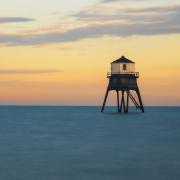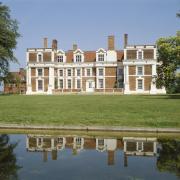Author, Professor of Environment & Society at University of Essex and President of Essex Wildlife Trust, Jules Pretty looks back on his remarkable career and shares his hopes for a more sustainable future
Living in the beautiful Stour Valley on the Essex/Suffolk border, Professor Jules Pretty loves this corner of England. ‘Essex is a unique county, rich in diverse and historical landscapes, cultural history and rural and coastal environments. It is also a place of innovation, creativity and escape.’
He also has strong working links to the county. Having worked at the University of Essex for 26 years, Jules says he is proud to work for an organisation that was set up by and for the people of our county. He is also president of Essex Wildlife Trust, and earlier this year, he was appointed a Deputy Lieutenant for Essex. There is a common theme linking his roles: his passion for environmental matters.
‘I was born and grew up at the southern edge of the Sahara in Africa and spent much of my early years outside,’ Jules tells me. ‘I then came to the coast of East Anglia and had never seen so much water! I have been interested in the central role of nature in our lives for all my life.’
Jules worked for a decade at a think-tank in London called the International Institute for Environment and Development, where he ran a programme on sustainable agriculture. He worked in more than 40 countries to find more sustainable and productive ways of producing food. For his efforts, he was awarded an OBE for services to sustainable agriculture in the UK and overseas, alongside other accolades from top worldwide organisations. He is among the top one per cent most-cited scientists worldwide.
Amazingly, amongst all this, Jules has found time to author seven books and has shared his knowledge through podcasts, television and radio. Now, he’s bringing his expertise more directly to the people of Essex with his role as chair of the Essex Climate Action Commission.
‘It is a novel and important institution, set up in 2020,’ Jules says. ‘It has 40 members drawn from the public, private and voluntary sectors. In 2021, we produced a report with more than 100 recommendations covering food, natural places, energy, housing, transport, waste and the green economy. I was very pleased indeed when all the political parties at Essex County Council accepted the recommendations in full. The ECC has appointed a Climate Czar and has allocated large sums of money to speed up the transition to net zero.

‘The recommendations are framed around how addressing the climate crisis can help the people of Essex create new ways of living that are low emissions, low cost to households and that deliver high well-being. There are a number of county-based commissions in the country, but this one in Essex is leading the way.’
So, what can we do at home to address the crisis? Jules explains, ‘There is a simple idea here: the whole world currently produces 55 gigatonnes (or a billion tonnes) of carbon. If we can get this to about 10 billion tonnes, then the climate will be healed and the world can return to a safe place. This is approximately one tonne per person worldwide. So our aim, each of us, should be to take steps to get to no more than one tonne each per year. The current UK average is 7.7 tonnes per person.’
Using the latest data, Jules has come up with 30 carbon-saving options that we can all implement. ‘This is a menu of options, not a route map,’ he says. ‘Each person can do different things in a different order. The main thing is to choose one per year (just one!), and by 2030 we would collectively be on the route to a safer world – hence, we call the list Thirty for 30. This is also better for our health, our economy, for local jobs and for nature.’
Examples from the list include adopting a vegetarian diet, replacing your fossil fuel car with an electric vehicle, recycling all plastic and planting ten trees.
Jules says: ‘I have given 35 public talks on the climate crisis and my book, Sea Sagas of the North, since last June. I have spoken to about 1,400 people and I have found a real appetite for change – people wishing to do what they can. This gives me great hope.
‘And hope is a key word. It comes not from the limelight, but from the flickering shadows and margins. Hope is located in uncertainty; we do not know what will happen and so our actions matter. When you act with hope, you soon find others – hope helps us move from the individual to the collective. We can be amazed by the blossoms on the far hill, then work together to care for them. Hope is about creating a future for us all.’
Want to find out more? Jules’ new book, The Low-Carbon Good Life, explores how to reverse and repair four interlocking crises arising from modern material consumption: the climate crisis, growing inequality, biodiversity loss and food-related ill health. The book offers opportunities to live in ways that will bring greater happiness and contentment. Purchase at routledge.com
julespretty.com






























